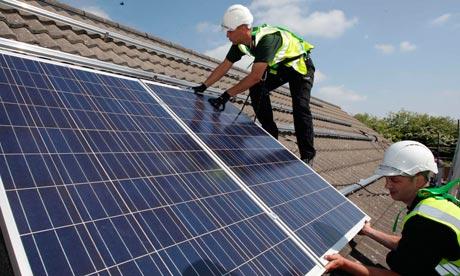Notifications

5 minutes, 5 seconds
-41 Views 0 Comments 0 Likes 0 Reviews

Solar energy is no longer just a trend, it’s a movement. More homeowners may be doing their homework to determine how much they can save by putting up solar panels at home and how living more sustainably may help them reduce those electricity costs. The advantages of solar power are straightforward enough. From saving money to lowering your carbon footprint, you probably know by now that there are many reasons to consider solar power. But whether your solar dreams are driven by cost, climate, or conscience, even the most avid green-living enthusiast might not know everything about solar.
One common myth is that you need to live in, say, California or Arizona for solar panels to work well. In practice, solar panels home systems are useful even in areas that are humid or cold. Today’s solar technology is engineered to harvest diffuse sunlight; that is, panels can produce power even on cloudy days.
You don’t have to disconnect from the grid if you go solar. Indeed, many rooftop solar systems are grid-tied, meaning that homeowners can draw electricity from the traditional grid whenever needed and sell leftover power back to the grid. That way, you’ll always have a supply of energy, and you may even be able to decrease your monthly utility bill with net metering.
Studies have found that homes with solar panels tend to sell faster and for more money than homes without. Buyers are showing more interest in energy-efficient features, and a solar-equipped home will often offer the promise of long-term energy savings. This extended value proposition makes solar panels at home an intelligent investment, not just an energy improvement.
They don’t need much maintenance, despite what some people may think. And after being mounted, they require little more than occasional cleaning and yearly maintenance checks to work at peak proficiency. Most solar systems are designed to last for 25–30 years, and most come with long-term warranties.
Grid-tied systems without battery backup will not generate power during a blackout for safety reasons to prevent utility workers from being electrocuted. But homeowners who add solar batteries can store energy and continue to run critical appliances during outages. This product is one more step toward energy independence and freedom.
The biggest obstacle for many homeowners is the cost of taking on that project. There are a variety of ways to finance solar, including solar loans, leases, and PPAs. These programs allow homeowners to get solar panels at home through home solar systems with no or minimal money down and pay over time through an electricity bill. At Simply Solar, we feel that you make better decisions when you are well-informed. That’s why we’re dedicated to helping homeowners understand the advantages and truths of making the switch to solar.
There is a lot more to home solar than some might read as well, from performance across multiple climates to its impact on the value of one’s home and grid independence. With falling prices for solar and advancing technology, it is no longer a luxury, but a practical and very smart choice for many homes.

